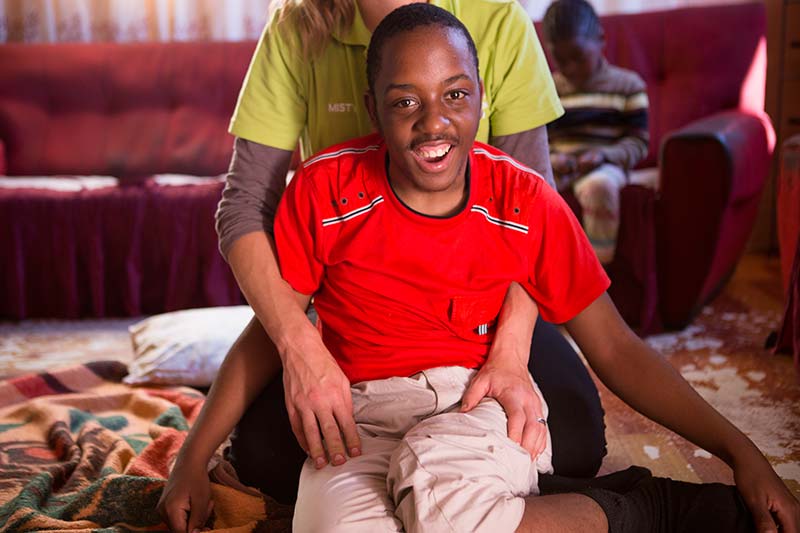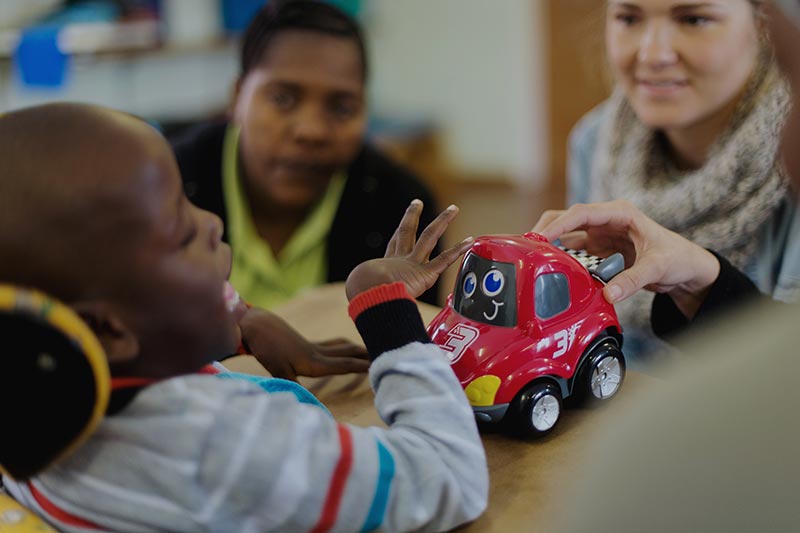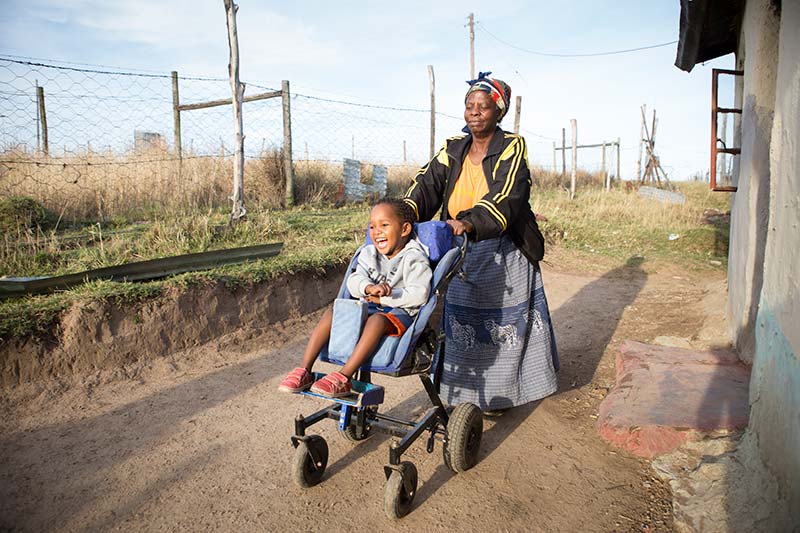WHAT IS CP?

- Cerebral Palsy (CP) describes a heterogeneous group of permanent disorders of movement and posture which are attributed to non-progressive disturbances in the developing foetal or infant brain and causing limitations in activity. The motor disorders of cerebral palsy are often accompanied by disturbances of sensation, cognition, communication, perception and/or behaviour and/or by a seizure disorder (Rosenbaum et al., 2007).
- More simply put, CP is a permanent disability where damage to a child’s brain causes problems with movement and posture. Children can appear stiff, floppy or have too much movement making it difficult to maintain a position or control their actions. Children with CP often have associated impairments as well, such as: visual, cognitive, hearing, behavioural, sensory, perceptual and intellectual impairments.
WHY DO WE FOCUS ON CP?
- CP is the most common cause of childhood motor disability.
- It is a complex form of disability that is accompanied by many associated impairments (such as eating and drinking; communication and vision) and thus a child with CP is a child with multiple disabilities.
- It is a challenging disability to treat and manage for young therapists working at rural hospitals.
- Many therapists graduate with very little experience of handling a child with CP and their training on CP is very limited.
- CP is a lifelong disability for which there is no cure. Although the damage to the brain does not become worse,
the musculo-skeletal system deteriorates over time causing the child’s body to become worse. - Because of the complexity and challenging nature of CP, if you can improve services for children with CP and
create supportive environments for the children, there is a strong possibility that you will improve
the overall quality of services for all children with disabilities.
WHY DO WE FOCUS ON RURAL AREAS?

- Hospitals in rural areas are often more poorly resourced than those in urban areas, especially in terms of the number of therapists employed at the hospital.
- Rural hospitals generally experience a high staff turnover rate and are often reliant on community service therapists with limited training and experience to deliver services to children with CP.
- The areas that rural hospitals serve are geographically large and thus parents have far and expensive journeys to undertake from their homes to the hospitals. This results in them not being able to bring their children for therapy regularly.
- The nature of the terrain that parents in rural areas have to travel to get to the hospital often does not allow for the use of wheelchairs or assistive devices. This means that as children become too big and heavy to be carried, they no longer have access to therapy.
- So in general, children with CP living in deeply rural areas have less access to therapy.
We believe that ALL children with CP, irrespective of where they live or how poor their families are, deserve no less than what any child, in any context, is entitled to – a supportive environment where they are loved, nurtured and cared for, as well as access to therapy which will make a real and meaningful difference to the quality of their lives, as well as the lives of their caregivers.

